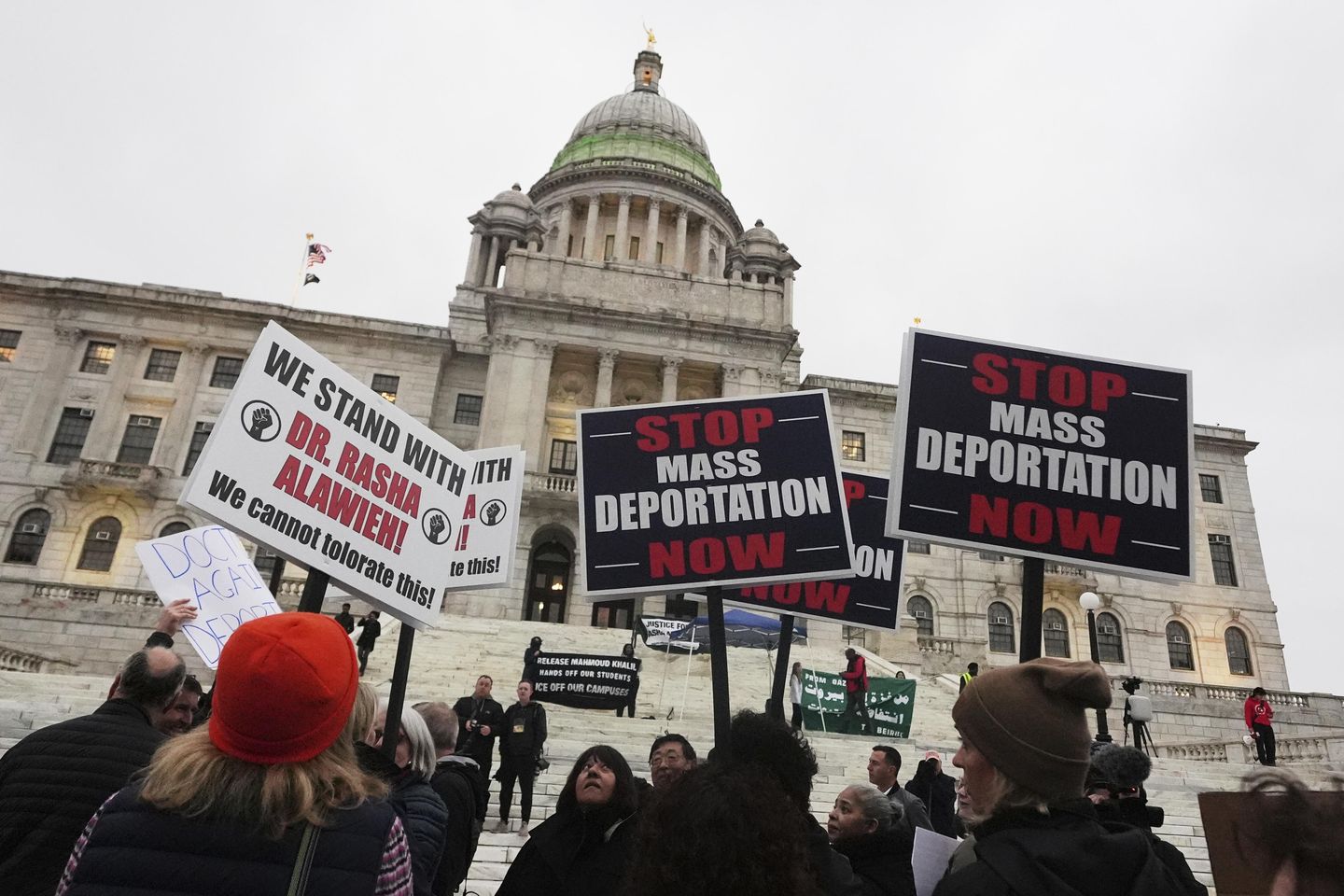
A president signs an executive order sending immigration officers to track down foreign students amid unrest in the Middle East, persuading some to leave on their own and threatening to deport others.
It sounds like President Trump, but he is following a path blazed 46 years ago. During the Iran hostage crisis, President Carter ordered his administration to review the status of tens of thousands of Iranian students to determine whether they should be deported.
Then, like today, the targets sued to block the president.
Carter lost at the lowest court but won at an appeals court. The decision cautioned judges to show restraint in blocking presidential action when immigration is used as a foreign policy tool.
“Certainly, in a case such as the one presented here, it is not the business of courts to pass judgment on the decisions of the president in the field of foreign policy,” U.S. Circuit Court Judge Roger Robb wrote.
He added: “Judges are not expert in that field and they lack the information necessary for the formation of an opinion. The president on the other hand has the opportunity of knowing the conditions which prevail in foreign countries, he has his confidential sources of information and his agents in the form of diplomatic, consular and other officials.”
The Iranian students asked the Supreme Court in 1980 to hear their cases, but the justices declined.
At that point, out of some 50,000 Iranian students in the U.S., the Justice Department determined that 7,000 were deportable and started removal cases against roughly 5,000. Only 19 were deported; hundreds chose to self-deport.
Andrew “Art” Arthur, a former immigration judge who is now with the Center for Immigration Studies, said the parallel to Mr. Trump’s actions is clear. In both cases, the president is trying to weed out foreign actors deemed detrimental to U.S. foreign policy.
“It’s the exact same thing,” he said.
Mr. Trump’s Executive Order 14188, signed in late January, called on federal agencies to prosecute or deport “perpetrators of unlawful anti-Semitic harassment and violence.”
That triggered a provision of the Immigration and Nationality Act that allows the State Department to revoke visas of foreigners deemed threats to national security or U.S. foreign policy interests.
“It’s a specific delegation of authority to the secretary of state,” said Rosemary Jenks, policy director at the Immigration Accountability Project.
The moves have drawn fierce denunciations from immigration rights activists, Islamic groups and some civil liberties organizations, which say the administration is trying to shut down pro-Palestinian voices.
“By design, the agencies’ policy has created a climate of repression and fear on university campuses,” the American Association of University Professors argued in a lawsuit last week.
Arrests have sparked campus demonstrations and protests.
Video of the arrest last week of Rumeysa Ozturk, a Turkish graduate student at Tufts University in Massachusetts, quickly went viral.
“This alarming act of repression is a direct assault on free speech and academic freedom,” said Tahirah Amatul-Wadud, executive director of the Massachusetts chapter of the Council on American-Islamic Relations.
U.S. officials said Ms. Ozturk showed “support of Hamas.”
One wrinkle for Mr. Trump is that the court described the seizure of the U.S. Embassy in Tehran and the taking of hostages as “violent lawless acts against the United States.”
“The status of Iranian aliens cannot be disassociated from their connection with their mother country,” Judge George MacKinnon wrote.
Whether the status of students protesting Israel, with varying degrees of lawlessness, rises to that level remains to be seen.
Indeed, attorneys for the students say their clients are being targeted for speech and viewpoints protected by the First Amendment.
The Trump team argues that the issue is aberrant behavior and that protesting isn’t a viable reason to obtain a student visa.
The legal wrangling over Mr. Trump’s moves is very early, but a court has issued a temporary restraining order blocking the government from detaining or deporting Yunseo Chung, a South Korean immigrant in the U.S., as a legal permanent resident.
The Columbia University student attended a March 5 protest that seems to have drawn authorities’ attention.

















